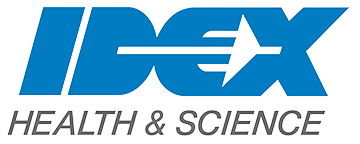

IDEX Health & Science Prioritizes Environmentally Friendly Initiatives

IDEX Health & Science is constantly pursuing ways to innovate and incorporate environmentally conscious decisions into our day-to-day operations. Across all IDEX Corporation business units, data is tracked for energy consumption, greenhouse gas emissions, and water consumption on an annual basis. The data collected is evaluated by leadership and local business unit teams evaluate ways to reduce our impact.
Learn more about recent upgrades that helped decrease our carbon footprint in 2023 below.
Rochester Reduces Warehouse Storage Carbon Footprint


After a year of use, the warehouse team at our Rochester facility has seen nearly a 75% reduction in warehouse storage through a new inventory management program, Kardex. Kardex Vertical Lift Modules (pictured left) combined with automated software solutions optimizes inventory storage and retrieval.
Ryan Bushman, Senior Manager of Warehouse & Customer Logistics, explained: “The large win from an environment perspective has really been the way Kardex has encouraged us to re-think how we store things.”
Our team now goes through a process of unboxing and unwrapping of parts and then storying them directly into the Kardex (or on the shelf) for inventory management. “Our experience,” says Bushman, “is that parts that are removed from a box, unwrapped, and placed in a tote or tray take up 50-75% less space.”
With the Kardex system in place, Ryan said: “We have [partnered] with the procurement and quality team to work with vendors to reduce the amount of waste packaging they are sending us. For some items, the vendors are now sending us 75% less packaging material, which would have otherwise ended up in the trash.”
Oak Harbor Turns on the Savings with Second Installation of LED Fixtures
In 2023, the facility on Oak Harbor completed a second LED lighting upgrade in its 2,500-square-foot machine shop area. Thirty-three LED fixtures were installed, which replaced 47 fluorescent fixtures. These new fixtures will save over 17,700-kilowatt hours per year, up to 55% in energy reduction savings for lighting overall.
“We were using 4,330 kWh per month and now we are only using 2,400,” said David Hendrix, Facilities Manager in Oak Harbor. These savings are for the machine shop area alone. In 2021, the 9,000-square-foot molding building upgraded to LED lights, which has yielded over 18,000 kWh savings per year.
In addition to the energy savings, LEDs have a much longer lifespan. They last up to 3-5 times longer than CFLs, so they produce less waste. They also emit very little heat and use 75% less energy, meaning less harmful gasses are emitted into the atmosphere.
Middleboro Helps the Planet to Breathe Easier with Water-Based Odorless Cleaner
In our Middleboro facility, a water-based cleaner has been tested in 2023 to eliminate the typical chemical solvent-based cleaners that are traditionally used in manufacturing. The new environmentally friendly cleaner is used to clean columns and tubes made at the facility.
“The mixture is 84% water. It has a very low vapor pressure, which means it won’t evaporate into the atmosphere quickly causing air pollution. The original solvent-based cleaner we used did evaporate quickly, which has a more negative impact on the environment,” said Larry Burdge, Senior Manager, Fluidics EHS & Sustainability. “We knew there had to be a better, cleaner way than using organic solvents.”
The added bonus is the cost to implement this new cleaner is not much more than the traditional cleaner. “So far, the cleaner has worked very well. The goal is to get rid of the original cleaner by 100% by 2024,” added Larry.
Protecting and Investing in Our Environment with New Solar Rooftop Array
IDEX Health & Science’s 67,000 sq. ft facility in Rohnert Park, CA activated its rooftop solar array earlier this year—offsetting its electric use from the public utility by 90%-97% and reducing energy costs from .18-.22 cents per kWh to .04 cents per kWh. The high cost of energy is not the only driving force behind this project. IDEX Health & Science is committed to understanding its operating footprint and reducing its environmental impact through facts and metrics.
“Creating clean energy for our site is important to our goals at IH&S and IDEX. We know we have an impact on our environment and being able to take action to mitigate that impact is part of our identity. You also need metrics to understand your energy use and take responsive action. If you don’t measure it, you don’t know how to address it,” said Jon Wambold, Site Leader at Rohnert Park.
The metrics are impressive. The solar panels will have a 4 ½ year payback and will last 25 years which will provide significant cost savings, and the long-term environmental benefits far outweigh the monetary benefit.
